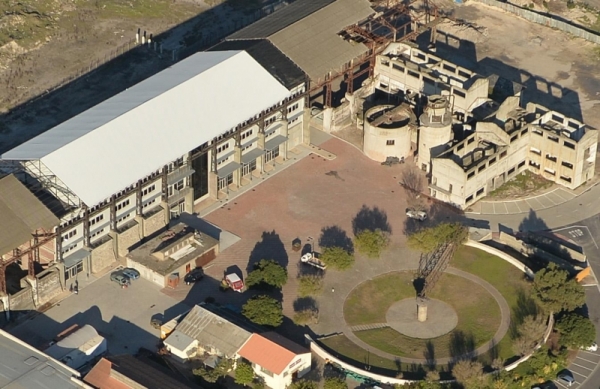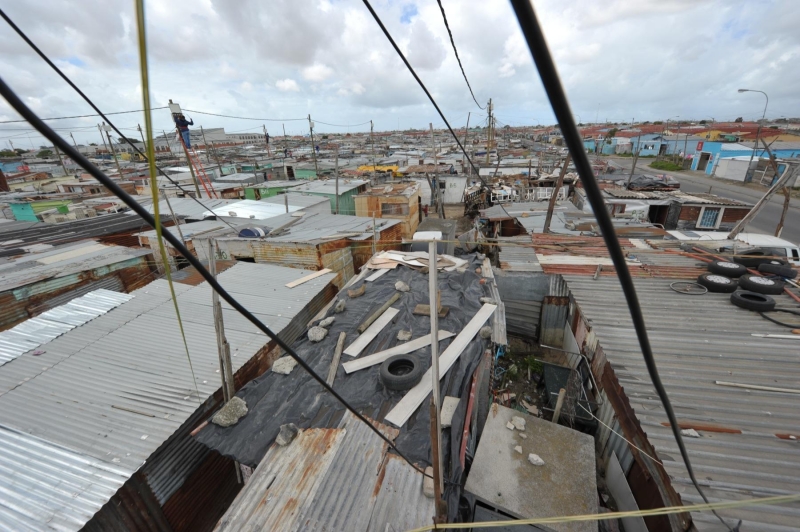Ambitious plans for Philippi

Starting in September, the Philippi Economic Development Initiative has plans to turn the Philippi area into a “vibrant urban hub”.
With a R2.2 million grant from the City of Cape Town and some funding of its own, PEDI intends to partner with the City and the provincial government to transform transport, agriculture and infrastructure in the area.
PEDI was established in 1998 as a non-profit organisation by the City in partnership with the Western Cape Provincial Government, businesses and the community, to promote economic growth and development in the Philippi Industrial Area.
During a tour of the area last week, PEDI chief executive Thomas Swana said Philippi was in decline because of a lack of integrated development.
“Philippi is perceived by many to be dangerous, it is seen as dirty and we want to change that. We would like to rebrand this area from township to central suburbs,” said Swana.
 The Philippi Economic Development Initiative hopes to turn the area into a “vibrant urban hub”. Photo by Bruce Sutherland
The Philippi Economic Development Initiative hopes to turn the area into a “vibrant urban hub”. Photo by Bruce Sutherland
PEDI’s research had found Philippi had one of the highest unemployment rates in Cape Town. The industrial zone had battled to emerge from its historical position as an economically depressed area . Constraints such as poor access, insecurity, and poor infrastructural services had offset the attraction of low-cost land and proximity to a pool of labour, Swana said.
Driving through Marikana informal settlement where, on 22 August last year, violent evictions made headlines, Swana said a solution had to be found to improve living conditions in that area as conditions were appalling but services could not be provided on private land.
GroundUp was told that Philippi’s train stations would be upgraded and the MyCiTi public transport network would be expanded.
“Of the 16 routes criss-crossing the city of Cape Town, no fewer than seven are scheduled to go through the heart of Philippi,” said Swana. “Among the roads that will be upgraded as part of the MyCiTi project are Stock Road, Sheffield Road, Govan Mbeki Road and Imam Haroon Road, formerly known as Lansdowne Road”.
Behind an old dilapidated building lies Philippi Village which is to open its doors in September. Philippi Village will include a Container Walk of businesses in customised shipping containers. One of them will be the Department of Coffee, the first coffee shop in the area.
Philippi ward 35 councillor Mzuzile Mpondwana said the projects had been discussed in the community and had been welcomed. He said people would benefit through jobs and better transport.
“A timetable was drawn up and in my ward we used loud hailers to make people aware of meetings that were to be held about the developments. Some worries raised by communities were related to transport. They wanted to know exactly how routes would be worked out. In terms of the MyCiti bus service, people want to know if the service will as good as that in affluent suburbs.”
Swana said more needed to be done to make sure that the community was part of the whole development.
“We held four community meetings in the last quarter of 2014, and one more with the Philippi Youth Development Forum workshop two weeks ago. We have done our best to inform the whole community, but we can do more to get the word out.”
“We are liaising with councillors in the area asking questions like who is the community, how will they be more involved, how will they benefit, who will the beneficiaries be. These are things that we are still working on,” he said.
Marikana resident and acting chairperson of the informal settlement community Joseph Makeleni, said he knew nothing about any developments in the Philippi area. “I haven’t heard or attended any meetings and I haven’t seen any developments,” he said.
Next: Outrage as rape accused gets bail
Previous: Is Operation Fiela to be extended?

This article is licensed under a Creative Commons Attribution-NoDerivatives 4.0 International License.


